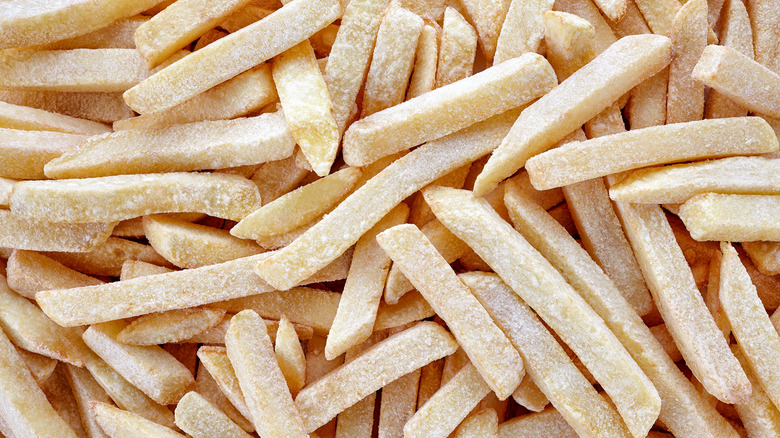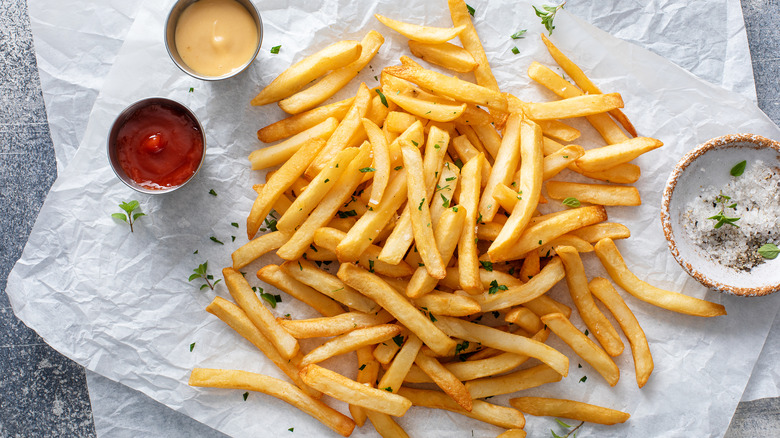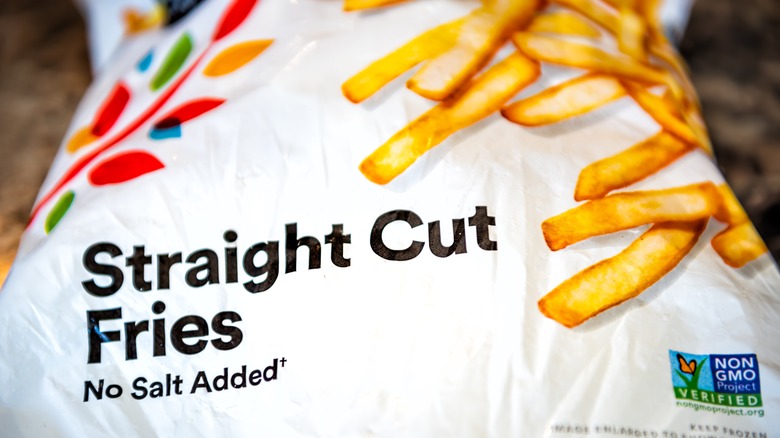The Scientific Reason Chefs Prefer Frozen Fries Over Fresh
Frozen food can definitely get a bad rap — and it's understandable why since so many frozen products are packed with additives and unwanted ingredients. But not all frozen food is created equal, and not all frozen food deserves that bad rap.
Chefs know this, and there's a reason why they prefer to buy certain foods frozen rather than fresh. For example, some frozen vegetables, like broccoli and corn, are flash-frozen in their freshest state, often bringing out the best taste, color, or texture of the vegetable without sacrificing its nutrients. Even frozen shrimp will often be of higher quality, especially if you don't live near water and can't buy local seafood.
But for some foods, it simply comes down to science — like French fries. When frozen, the fan-favorite fried snack is made in a specific way that elevates the final result above its fresh or homemade counterpart. And that's why chefs prefer frozen fries over fresh: because they're scientifically formulated to cook, and ultimately taste, better.
Starch, sugar, and science
In order for fries to cook to that perfect consistency and crispness that you want out of any French fry, they have to have just the right starch content. Potatoes with high dry matter and low sugar content will transform into the best French fries. And frozen fries, which are preserved at their prime, ensure that these levels are ideal with each and every batch.
According to the experts at Idaho Potato, frozen French fries are weighed and measured to ensure that they have the perfect balance of starch versus water content. Before being processed, each potato will have an average of 21% starch solids — with the last 79% as water. As the potatoes are processed for freezing, they will be cooked in a way that removes moisture, ensuring a perfect fry each time. After being cooked but before the fries are frozen, they are tested to ensure they have the perfect balance of starch. Plus, the initial boiling helps remove some of the excess sugar to prevent over-browning when frying.
Another big scientific factor? Typically, you need to use the double-fry method and cook French fries twice to achieve that crispy-on-the-outside, fluffy-on-the-inside result. But frozen fries are already cooked — at least once, and often twice — which not only saves time and prevents any moisture issues, but also improves the actual frying results, delivering that perfect fluffy French fry texture.
The caveat: read the label
There's one important thing to keep in mind: You want to make sure to buy the right kind of frozen fries. Because, as stated before, not all frozen food is created equal ... and there are lots of brands out there that include hidden ingredients, added sodium, and preservatives. This includes things like xantham gum, sodium acid pyrophosphate, annatto coloring, and other words you probably don't recognize and probably don't want in your potatoes.
To make sure you cook up some tasty, crispy fries that actually taste like fries, the key is to avoid any unnecessary additives. To really ensure that you're getting the best of the best, look for "100% potato" on the ingredient list. The fewer ingredients the better, and be aware of the type of oil used for the fries, as well. This will not only ensure you're actually eating real potatoes but obviously help keep the integrity of what a French fry is supposed to taste like.



